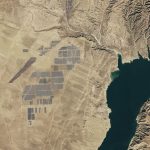Jonathan Rees’s Refrigeration Nation has a great deal to say about the way refrigeration technology brought about profound changes in eating habits, agricultural practices, and even entire national economies over the last two centuries.



Jonathan Rees’s Refrigeration Nation has a great deal to say about the way refrigeration technology brought about profound changes in eating habits, agricultural practices, and even entire national economies over the last two centuries.

Petrick provides historic perspectives of how computer technology was developed in the United States allowing persons with disabilities full participation in their own lives and in the society.

The big issue is the mass scale big data collection strategies using social media intelligence, CCTV, behavioral biometrics using facial recognition and visual analytics to monitor human activities, the keystroke-level tracking of end-users by third parties on Internet websites, the use of in-bound technology devices that conduct ICT surveillance and home monitoring, and even fitness trackers we carry alongside our mobile phone that are set to control our health insurance premiums.

Information generated on social media sites such as Twitter, Facebook, Flickr, and Instagram are fast becoming powerful and ubiquitous new sources of time-critical data needed to aid decision making during extreme weather events and emergency situations.

We must challenge ourselves to transcend our familiar notion of the IT artifact as just an inanimate tool standing by for our use like some sort of mechanical device, neatly separable and distinct from us. It is far more productive to view Information Technology as practice.
Citizen trust and confidence in the public institution and notions of the public good are, in many ways, the bottom line for the public sector.

Today, over 90% of U.S. teenagers are online. When it comes to social media, 50% of all teenagers log on at least once a day, with 22% logging on more than 10 times a day. We, like our parents and their parents before them, are worried about the effect that technology is having on the development of our kids. The author discussed the five rules for teaching teens to live with technology responsibly.

As technological advances disrupt existing markets and value networks, change can outpace our ability to adapt.

The Trump administration cannot simply reject current theories of climate change based on nothing more than that it may conflict with a constituency’s self-interest or one’s sheer lack of understanding.

Australian Aboriginal sovereignty is no longer just about Aboriginal communities retaining rights to their own land. The most brutal types of dispossession are the latest forms of data retention, decreased privacy, and unwarranted use of this personal data as a result of activities being collected, analyzed, and intelligently manipulated by geographically remote entities, all thanks to the Internet.

Twenty-five years ago we didn’t know that solar energy, including modular photovoltaic (PV) plants ranging in size from 1 kW to hundreds of megawatts, along with increasingly larger, electronically-aided wind generators (up to 8-MW offshore units), would become in just 25 years the cornerstones of a revolution in power production that is drastically changing the face and fate of power systems.

While societal change often takes place over extended periods of time, at key times in the history of human society, innovation can be accelerated by a combination of necessity and serendipity. We are currently experiencing such an accelerated transition.

Unmet local concerns related to renewable energy projects can result in costly project delays or cancellation. Strong political and financial incentives encourage state authorities and renewable energy developers to address issues of social acceptance.

Frugal innovations are all the rage. Their appeal stems from lower costs to society at large.

The IEEE Society on Social Implications of Technology announces the selection of Jeremy Pitt, Professor of Intelligent and Self-Organizing Systems at Imperial College, London, U.K., as Editor-in-Chief of IEEE Technology and Society Magazine, beginning January 1, 2018.